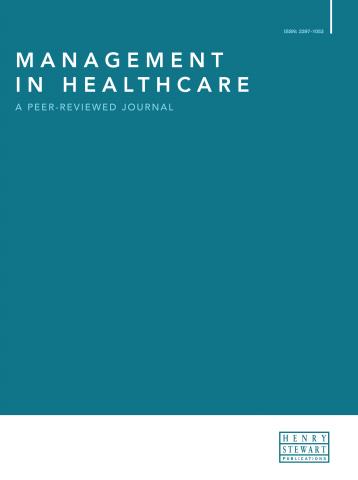“Journal of Digital and Social Media Marketing provides a unique blend of practitioner and academic expertise to offer the reader an in-depth understanding of digital marketing case studies and authoritative opinion. Each article passes a peer-review prior to publication, by leaders in the industry from around the globe, ensuring the reader gets the best-of-the-best in digital marketing insights.”
Addressing burnout by enhancing resilience in a professional workforce: A qualitative study
Click the button below to download the full text of the article.
Abstract: This study aimed to explore the application and effectiveness of interventions with non-physician, professional management engineering and internal consulting staff experiencing increasing levels of burnout in a healthcare environment.
We hypothesised that interventions could be applied to decrease levels of burnout in this professional population. A total of 120 engineering and consulting professionals across three locations of our institution received education during four one-day events over a two-year period regarding the symptoms and drivers of burnout, and interventions to decrease it. This education, along with skill-building exercises to promote resilience, was provided by leading subject matter experts in burnout reduction and was reinforced at the worksite by peers, leadership and validated supporting resources. Changes in burnout were assessed through responses to an institutional survey.
Results indicated a meaningful absolute decrease in burnout of 12 per cent between 2013 and 2015. Additionally, qualitative feedback from staff supported the efficacy of the burnout and resilience programmes. Stress and burnout are ongoing issues in the workplace because they potentially affect productivity, effectiveness and well-being. Equipping staff to manage stress and burnout with the help of resilience education, skill building and worksite reinforcement will enhance resilience skills and decrease negative consequences of stress and burnout.
KEYWORDS: burnout, resilience, staff satisfaction, stress, work-life balance, well-being



